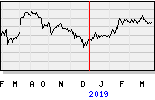
The world’s first fully biocomposite footbridge can be found on the Eindhoven University of Technology campus. The bridge, which was officially opened on Thursday 27 October, is fourteen meters long and is made from a hemp and flax-fiber base.
The new bio-bridge, as it is known, is the result of collaboration between a large number of knowledge institutions and companies.
Built by, among other, students from TU/e, TU Delft and the Eindhoven region’s vocational colleges, the bridge was put in place on Tuesday, 25 October.
To make the bridger, hemp and flax fibers were stuck to a biobased PLA foam (polylactic acid) core. A bioresin was then sucked into the fiber layers using a vacuum, which after hardening, produced a very strong girder.
The bridge load capacity has also been successfully tested for the municipality of Eindhoven. The idea is that the ‘biobridge’ should remain for a year. Twenty-eight sensors in the bridge will measure the bending that occurs. “There have been previous construction projects with biomaterials, but never before were they bearing structures made entirely of biomaterials,” says TU/e researcher and project leader Rijk Blok. “Through this experiment we hope to learn a lot about the behavior of the biocomposite over the longer term.”
The initiators hope that this bridge will show the potential of biocomposite as a sustainable alternative for existing environmentally harmful construction materials. “Using biocomposite in constructions reduces our dependence on finite fossil resources and brings us a step closer to the circular economy in which products and resources are reused,” Blok says. “In time, I expect that we will see more of these materials in our buildings."
The bridge is the result of the 4TU Lighthouse research project ‘B3: Fully Bio-Based composite pedestrian Bridge’. The partners were TU/e (chair Innovative Structural Design), TU Delft, composite company NPSP and the Center of Expertise Biobased Economy, a collaboration between Avans Hogeschool and HZ University of Applied Sciences. The project was co-funded by Stichting Innovatie Alliantie (SIA).
https://www.tue.nl/en/university/news-and-press/news
